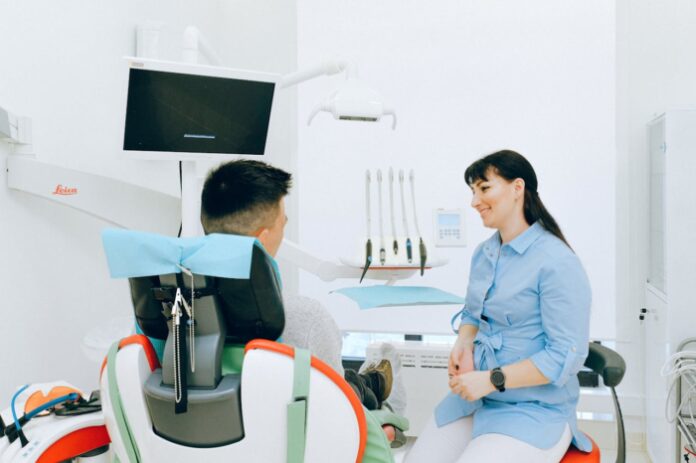If one or more of your teeth are damaged or missing, you may be interested in a restorative dentistry consultation and smile makeover. Using modern treatments like dental implants, veneers, crowns and more, your Kildonan Crossing Dental Centre can restore and protect your teeth, no matter how damaged they may be.
But the experience of seeing a dentist for a consultation can be a bit intimidating, so we’re here with some simple questions you can ask to get more details about a prospective dentist’s services, treatment style, and more. Read on, and make sure you’re prepared during your consultation.
1. How Much Experience Do You Have In Restorative Dentistry?
While all dentists are qualified to do basic oral surgeries and procedures like placing crowns and implants, some dentists prefer not to specialize in these types of dental treatment, instead focusing on preventive care, and more basic dentistry, like fillings.
Restorative dentistry is a big commitment – both of time and money – and you’re entrusting your teeth completely to your dentist. That’s why you should find out how much experience they have as a restorative dentist. How long have they been working? Are they participating in training workshops? Do they specialize in a particular procedure, such as all on four implants? Make sure that you vet them properly; check their reviews online from past patients.
Once you get a good idea of your dentist’s level of experience, you’ll feel more comfortable trusting your care to them – or you can seek a specialist if you’re not impressed by what you hear.
2. Can I See The Results Of Your Past Patients?
Every dentist will have a “smile book” in their office of their past patients, complete with “before/after” photos. Some dentists will also upload these photos to their website, so you can look at them on your own time. If you’re looking for inspiration, check out a dentist, such as Trident Smiles Dental in Sunnyvale, who can give you a clear idea of how transformative restorative dentistry can be.
When looking at these results, ask your dentist which procedures were used. Dental bridges? Implants? Dentures? Veneers? You want to get an idea of which treatment may offer you the best results, and what you can expect from each one.
3. Will You Work With My Insurance Company? How Much Will My Treatment Cost?
This is a big one. If you have dental insurance, it will likely cover at least part of the cost of a restorative treatment like a dental crown or bridge, implant, or denture, so you’ll want to make sure you work with a dentist who accepts your insurance plan.
If you don’t have insurance, or if your treatments exceed your coverage level, you’ll also want to ask about the cost of your treatment. Your dentist can break down which options may work for your condition, and how much you can expect to pay for each one. This isn’t a binding quote, but it will give you a good idea of the budget you should expect to set for your smile restoration.
4. Do You Offer Dental Sedation?
Sedation is a powerful tool which can help you feel more comfortable and relaxed during complex dental procedures, such as having dental implants placed. It’s not absolutely essential, but if your dentist offers sedation, make sure you understand your options, and if it would be a good fit for your procedure.
5. How Long Will It Take To Restore My Smile?
Some treatments take longer than others. A dental crown, bridge, or a partial denture can be built and placed in 1-2 appointments, taking just 2-3 weeks. Some other procedures, like dental implants, may take 3-6 months or longer.
In addition, if you need one or more of your teeth to be extracted, it could take 3+ months before your mouth is completely healed, post-extraction. Based on your recommended treatments, ask your dentist for an overall estimate of how long your smile restoration will take.
Don’t Be Shy About Asking Questions – It’s Why You Scheduled This Appointment!
When consulting with a restorative dentist, ask any questions you have about your treatment. This is the best time to get an informed, realistic answer about the cost, timeframe, and best approach for smile restoration, based on your oral health and the condition of your teeth.
So prepare yourself with these questions – and think of any other questions that you may want your dentist to address during your appointment!
Find a Home-Based Business to Start-Up >>> Hundreds of Business Listings.

















































